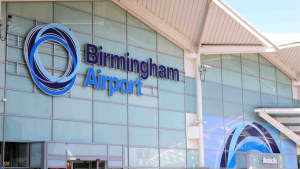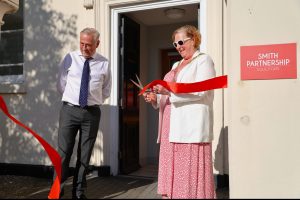Inflation growth another bitter blow to business

THE rise in inflation to 4.4% is another bitter blow to companies in the West Midlands struggling to overcome the current economic decline, business leaders in the region have said.
Latest figures from the Office for National Statistics show that inflation rose 0.2% in July – in line with Bank of England predictions the rate will top 5% by the end of the year.
Birmingham Chamber of Commerce Group said the rise would eat into any growth businesses might be able to achieve.
The chamber’s latest quarterly economic survey showed that 20% of manufacturers and 24% of service providers saw rising inflation as their biggest concern.
Christine Braddock, president of Birmingham Chamber of Commerce, said: “Gas and electricity prices and the pending increase in train tickets are likely to push the Consumer Price Index up to 5% by the end of the year.”
However, she said raising interest rates was not the answer.
“The main causes of inflation are international and therefore beyond the control of the Bank of England or the Government. Both China and India are suffering with high inflation.”
In the long term, the chamber expects inflation to begin to fall over the next two years before dipping below the Bank of England’s target.
Mike Dell, president of the neighbouring Black Country Chamber of Commerce, said caution was needed to avoid problems worsening.
“According to the ONS, inflation has increased due to a series of upward pressures including, clothing and footwear prices, fees for financial services and housing and household services, due to the increases in housing rent,” he said.
“It will take time for inflation to stabilise and slow to the 2% target in the future, but the Bank of England assure us they are confident that inflation will return to its target of 2% in the next two years.
“To this end, we need to remain cautious. The UK economy needs to grow steadily and the figures are a definite cause for the MPC to withhold increasing interest rates in September.”
Mark Smith, regional chairman at PwC in the Midlands, said the public perception of inflation was the rate could be much higher.
“Headline CPI inflation has picked up a little to 4.4% in July, but our everyday inflation index suggests the public may perceive the inflation rate for their regular purchases to be more than this at 5.9%. This reflects above average inflation rates in key categories such as food and non-alcoholic beverages (6.2%), alcohol and tobacco (10.3%), petrol and other regular motoring costs (10.0%) and rail passenger transport (9.3%).,” he said.
“So the severe squeeze on household real disposable incomes is continuing even before recently announced rises in domestic gas and electricity bills take effect this month. This will dampen consumer spending growth going forward and leaves interest rate rises off the agenda for the foreseeable future.”
Andrew Goodwin, senior economic advisor to the Ernst & Young ITEM Club, said the figures could be just the calm before the storm, with energy prices set to push up the rate sharply from next month.
However, he said there was cause for long term optimism as the factors conspiring to inflate rates would decline next year.
He said the MPC had plenty of flexibility to react should the growth outlook worsen further.









